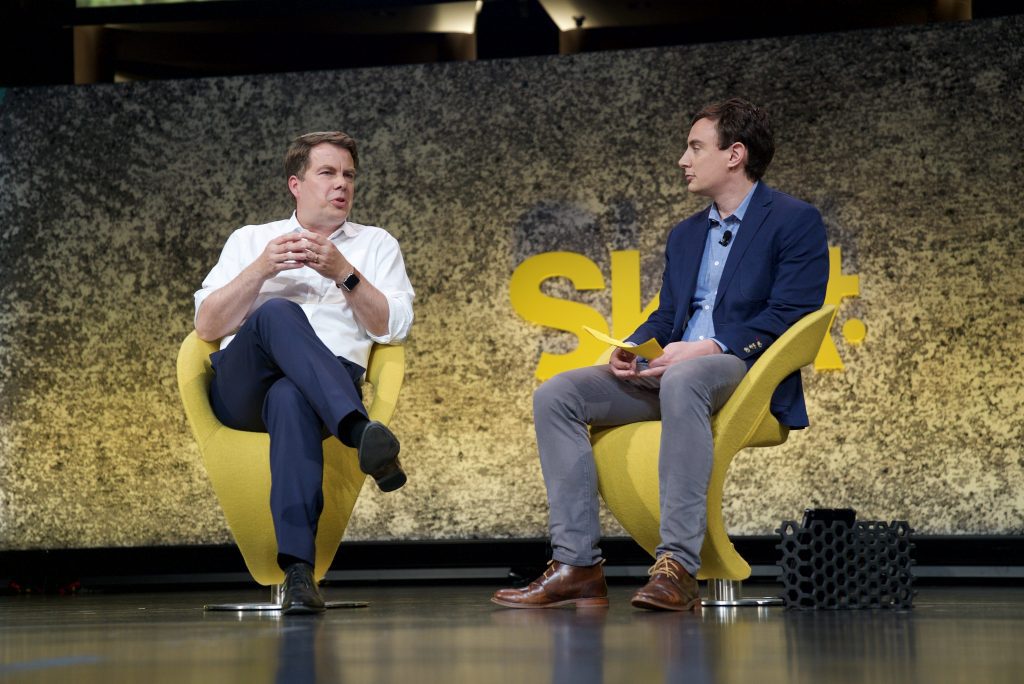Video: Lufthansa Strives to Become as Data-Savvy as Netflix

Skift Take
Many companies aspire to analyze customer data so they can more precisely guess what their customers want — sometimes even before their customers know what they want. Yet airlines have been late to this game, partly because of gaps in their data collection.
Airline complacency poses a risk. Companies with stockpiles of customer data like Google and Facebook, and online travel companies such as Airbnb, Booking.com, and Expedia, may soon be able to create products that siphon off parts of an airline's business that are adjacent to flying people in the air, such as the sale of in-flight entertainment or of luggage shipping services.
Already these companies have more data about customers' search patterns, travel behavior, and willingness to splurge on perks than airlines have. The data divide between digital gatekeepers and airlines may pose an existential threat to the carriers.
Enter Lufthansa, which is doing more than most to try to recoup the high ground in the data battle.
The German airline group is working hard to use data to develop a better understanding of its customers. In February, it appointed Christian Langer as its chief digital officer.
Langer spoke at Skift Global Forum in New York City about the challenge of connecting digitally with the 300,000 passengers that Lufthansa, Swiss Air, and Austrian Airlines fly every day.
Lufthansa wants to get better at collecting data about these flyers. "We are the rare company that can make a person sit in a chair for nine hours and track what they do," Langer joked.
"We know which wine you prefer, we know which movies you watched, and so forth," he said. "But the minute you land, all that data is erased. We need to change that."
Lufthansa's example may inspire other airlines that have been collecting terabytes of data with no idea what to do with it other than to pay for its storage. Until now, data analysis required heavy labor from business intelligence experts, but the rise of machine learning promises to unlock insights more cheaply.
For that reason, Lufthansa aspires to become a pioneer of digital innovation among airlines and to overcome the disconnect between digital experience and physical reality, Langer said.
For example, Lufthansa has been working on an algorithm that can predict where a traveler will want to take their next vacation based on data about their preferences and past booking patterns. The model is similar to how Netflix can plausibly guess which movies someone might like.
"The algorithm is a bold vision," Langer said. "But obviously, you need a lot of data to do this, and there are companies around that, honestly, have more information about your behavior and preferences than we do now."
It's a long path ahead, but Lufthansa is already making creative efforts at filling in the gaps in its knowledge about its passengers, Langer said.
Watch the entire interview above, or consider reading coverage of Skift Global Forum.
At this year's Skift Global Forum in New York City, travel leaders from around the world gathered for two days of inspiration, information, and conversation for panels such as this, as well as solo TED-like talks on the future of travel.
Visit our Skift Global Forum site for more details about 2018 events.





